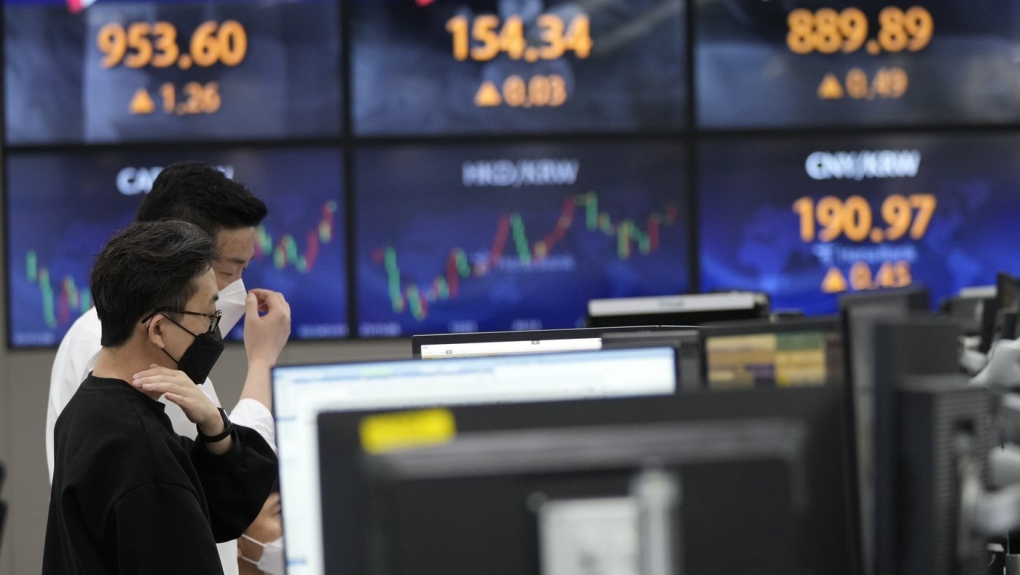TORONTO -
Canada's main stock index was relatively flat after a volatile couple of days as investors continue to assess the impact of Russia's unprovoked invasion of Ukraine and central bank responses to soaring inflation.
"Investors seem to be absorbing what's happening on those two fronts: Ukraine and inflation," said Anish Chopra, managing director with Portfolio Management Corp.
A 120-point loss Tuesday on the Toronto market was offset by a 250-point recovery a day later.
In addition to support from rising commodity prices, the S&P/TSX composite index and the loonie were helped by the Bank of Canada raising its benchmark interest rate for the first time in two years.
Bank of Canada governor Tiff Macklem followed the 0.25-point rate increase by affirming in a speech Thursday that the first of several rate hikes is aimed at staving off a problematic economic scenario that could be more costly to households than the double-whammy of higher inflation and interest rates.
Chopra said Macklem was reiterating past statements.
"Monetary conditions won't be as easy as they have been over the last two years, and they'll be tightening on a path that the Bank of Canada is trying to clearly communicate and not surprise investors," he said in an interview.
Federal Reserve chairman Jerome Powell gave similar remarks this week ahead of its expected rate hike later this month.
The S&P/TSX composite index closed down 5.23 points to 21,250.41 after reaching an intraday high of 21,348.89.
In New York, the Dow Jones industrial average was down 96.69 points at 33,794.66. The S&P 500 index was down 23.05 points at 4,363.49, while the Nasdaq composite was down 214.08 points at 13,537.94.
Investors are waiting for February U.S. employment numbers to be released Friday that are expected to be positive, said Chopra.
"Economies are still recovering nicely from COVID," he noted.
Commodity prices have been guided by increasing demand and rising concerns about whether Russia can supply the market with energy and metals in the face of sanctions.
The April crude oil contract spiked at US$116.57 per barrel Thursday but closed down US$2.93 at US$107.67 per barrel. The April natural gas contract was down four cents at US$4.72 per mmBTU.
Chopra attributed the oil decrease to rumours about a potential nuclear deal with Iran that would allow oil exports to offset losses from Russia.
The energy sector was one of five that lost ground on the TSX. It was down 1.6 per cent as shares of Secure Energy Services Inc. and Arc Resources Ltd. decreased 10.5 and 4.2 per cent, respectively.
The Canadian dollar traded for 78.96 cents US compared with 78.94 on Wednesday.
Health care, consumer discretionary, technology and financials were also lower. Toronto-Dominion Bank dropped 3.1 per cent after reporting results that lagged other Big Six banks in some areas.
Canada's technology sector followed the Nasdaq lower over concerns about stagflation, where you get modest growth, but higher inflation, said Chopra.
"That kind of environment tends to be negative for growth stocks, many of which are in the Nasdaq."
Materials led the TSX, rising 1.5 per cent as metal prices increased with Ero Copper Corp. up 7.2 per cent and Capstone Mining Corp. 5.9 per cent higher.
The April gold contract was up US$13.60 at US$1,935.90 an ounce and the May copper contract was up 11.6 cents at US$4.78 a pound.
This report by The Canadian Press was first published March 3, 2022.









































